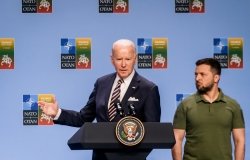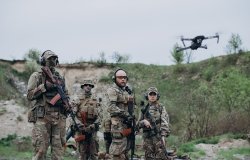Book Launch--<i>Nuclear Logics: Contrasting Paths in East Asia and the Middle East</i>
with Etel Solingen, Professor of Political Science, University of California Irvine
Overview
This meeting, jointly sponsored by the Center's International Security Studies, Asia and Middle East Programs, and the Los Alamos National Laboratory, was another in the ongoing Nonproliferation Forum series.
Etel Solingen's new study offers a comparative analysis of nine states over a forty-year timeframe using five discrete theories of international relations. The question she asks throughout is, "What explains the great variability in states' decisions go to nuclear or deproliferate?"
Solingen's analysis frequently finds fault with the established international relations theories' ability to explain nuclear decisions. Solingen finds that realist theories significantly over predict the spread of nuclear weapons. If, as realism posits, one state's nuclearization makes all its neighbors feel vulnerable, they should logically be expected to go nuclear in kind. Solingen asserts that the relative paucity of nuclear states indicates that insecurity and regional hegemony are unsatisfactory as reasons to acquire nuclear weapons.
In light of the "empirical problems" she finds in realism, Solingen emphasizes the under-appreciated role of domestic considerations in the decision to go nuclear. Overall, economic integration into the global economy acts as a disincentive to proliferation, whereas inward-focused leaders are significantly more likely to nuclearize. These inward-looking regimes are generally characterized by a techno-industrial bureaucracy, pervasive nationalist myths, and discretionary spending beyond budgetary oversight.
Using the lens of inward or outward positioning, Solingen finds that East Asia (with the exception of North Korea) has generally tended to be more outward-looking, while the Middle East tends to be the opposite. For countries whose participation in regional or international coalitions is strong, Solingen finds a tendency to depart from nuclearization. Japan, South Africa, Taiwan and South Korea all fall into that category. For inward-looking nations such as Iran, Libya or Iraq, the move towards autarky and global segregation frequently precedes nuclearization.
For Solingen, the strength of domestic models of nuclearization is their ability to explain many of the issue's most intractable problems, such as policy variance within states, variance over time, varying levels of compliance, why some dilemmas are thornier than others, and why some states seem to prefer strategic alliances as an alternative to nuclearization. Solingen stressed that the domestic factor approach to proliferation is not a theory per se, but rather a rule of thumb that provides a means of understanding state behavior. And unlike some established theories, it can be verified. Although the political sensitivity of nuclearization inhibits candid discussion within societies, the domestic approach is an important tool in the policymaker's belt when dealing with nuclear or presumptive nuclear states.
Concluding with policy recommendations informed by her approach, Solingen noted that while domestic factor analysis is the broad theory, specific policies must be individually tailored to different countries and cases. In general, positive inducements should aim at growth and integration into the global economy. Negative inducements should be aimed at individuals and seek to strip autarkic constituencies from inward-looking leaders.
Thank you for your interest in this event. Please send any feedback or questions to our Events staff.










